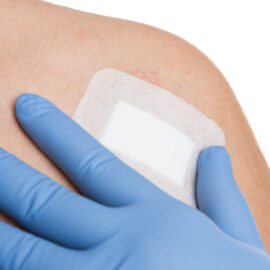For those who have required surgery, either from a traumatic injury repair or to otherwise correcting an undesired feature, the process of recovery can be fraught with emotions. Some days, one might feel triumphant as their range of motion starts to return to normal and strength comes back to the bones and muscles. Other days, the patient might be tempted to think that they’ll never get their life back to where it was before.
This gamut of emotions can seem to be felt even deeper when the patient has visited an elbow surgeon or a shoulder surgeon, or must have any part of their ambulatory limbs operated on. As such, an effort for surgeries to be as non-invasive as possible, as well as providing patients with all the tools they need for a quick recovery, remains the highest priority for the many gifted orthopedic surgeons of Utah.
Fastracking Recovery
It is not uncommon for most people to think of surgery as a necessary evil to getting the life that they want. Whether the procedure is elective or part of one’s treatment, the most important thoughts on everyone’s mind as they come out of the fog of anesthesia is first, did the surgery work? Was the doctor able to accomplish all that they set out to do? And second, how long is recovery supposed to last? Below are just a few of the most tried and true tips to getting out of rehab treatment quickly and back to your normal life.
Powering Your Body
It is no secret that in many respects, our bodies are machines and that they need to be properly maintained if they are going to run properly. While there is much that we can do to expedite our recovery in the gym with the help of a physical therapist, we are also responsible for not sabotaging our recovery at home in our down time.
- Manage a Healthy Diet
Perhaps you know that your body runs best on lean meats, plenty of green foods, and minimal levels of processed sugar. This is important when trying to build muscle or lose weight and it’s even more important when recovering from a trip to the elbow surgeon’s office. Maintaining good eating habits like eating protein-rich foods like eggs and chicken, fruits high in Vitamin C, or fish packed with iron for your blood, will give your body what it needs to heal faster.
- Hydrate Properly
Water, water, water. It can’t be said enough. Sports drinks with high sodium and caffeinated beverages are all subpar when it comes to getting the blood and nutrients needed to the wounds so they can heal.
- Get Plenty of Sleep
Any shoulder surgeon like Dr. Skedros will tell you that sleep is paramount to a quick recovery. Your body does amazing things while it’s sleeping and has a chance to recover from a day full of exercises. Sleep whenever you feel tired and go to bed on time. You’ll be amazed at how much better you feel during the recovery phase because you are allowing yourself to sleep.
Get Professional Help
Every orthopedic surgeon in Utah can recommend an experienced physical rehabilitation center, where patients can do specific exercises in order to strengthen their bodies and alleviate pain and stress on the surgery site.
- Don’t Skip Rehab
It might seem silly now, but so many people allow themselves to miss days of rehabilitation work because they simply let themselves get distracted or bored from going. Don’t be that person. The more often you go, the faster you’ll recover.
- Do What You’re Told
In addition to attending all your rehab sessions, the physical therapist will give you homework that should be done on your own time (or as prescribed by them). These exercises keep your body from atrophying to the work you’ve been doing already and will keep you limber and ready for more advanced moves sooner.
- Rest, But Don’t Get Lazy
There’s a difference between letting your body rest as it needs and becoming a layabout. Remaining active (within safe measures) is the best way to jumpstart your recovery each day. One day your physical therapy will end, but you’ll need to remain active so that your body doesn’t slide into chronic pain. Your Utah orthopedic surgeon will have more tips for you on how to avoid such a fate.

